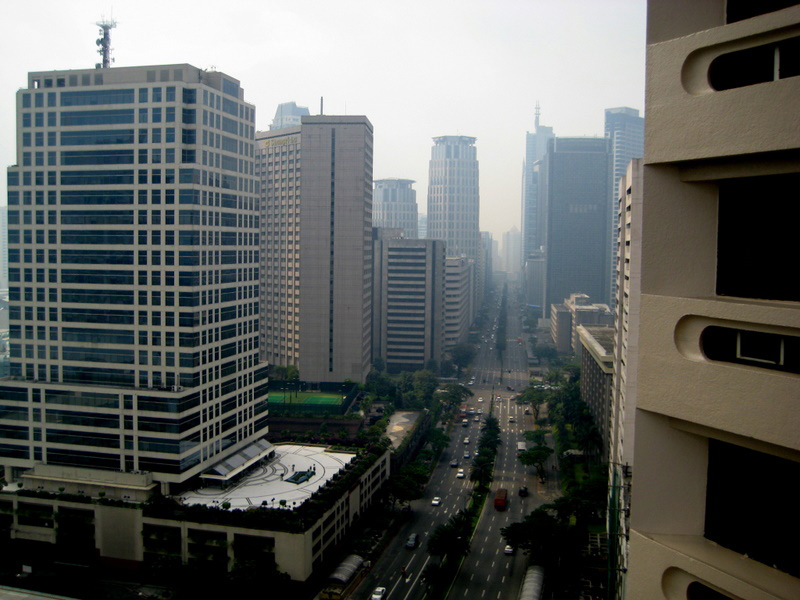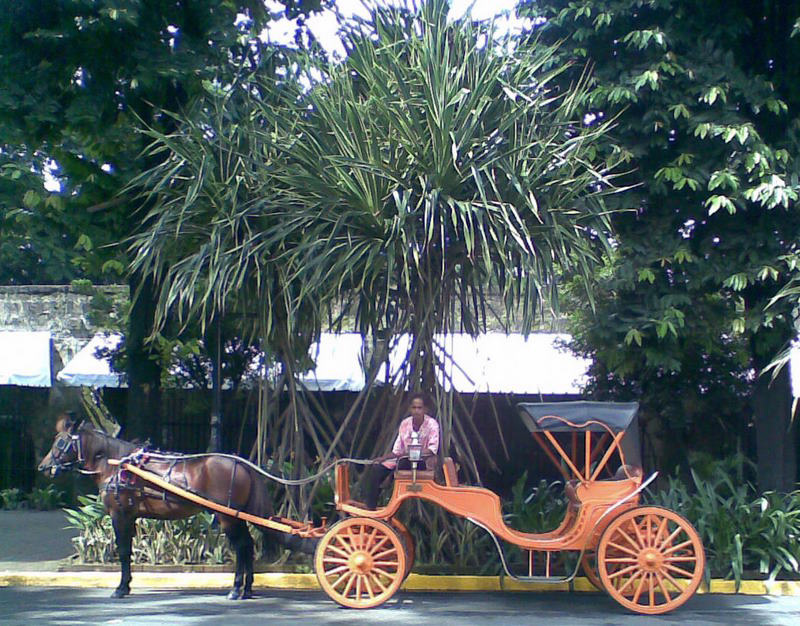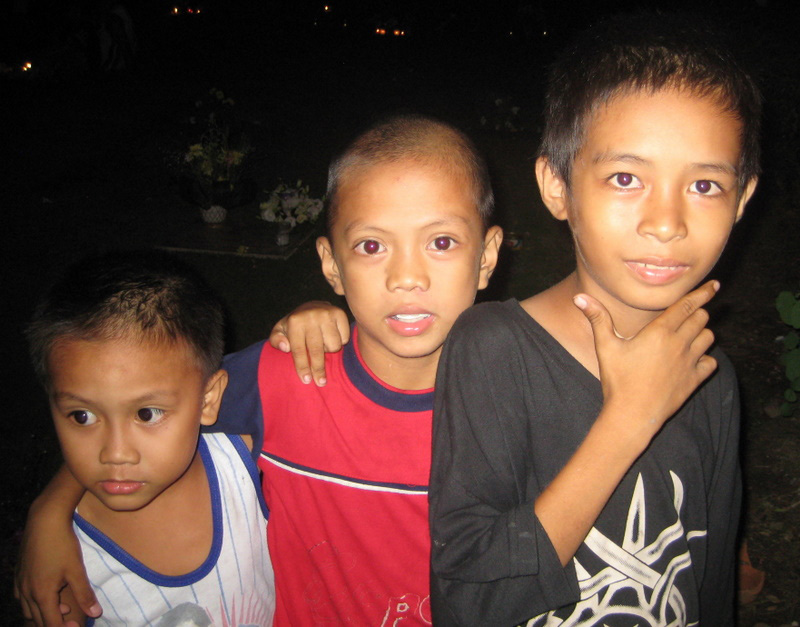Finding Jobs in the Philippines
Article and photos by Michaela Lola Abrera

|
|
Ocean Park Aquarium, Manila City. Photo ©Michaela Lola Abrera.
|
The weather is not the only thing that is smoldering in the Philippines. The nation's heart-pounding political landscape, frenetic energy, and complex past are just some of the reasons to dive into the local scene as an expat. And with its endless surf, hot nights in the city, or blood-orange sunsets, there is a lot to fall in love with in this land of extremes. With the haves and have-nots living side-by-side, the remnants of a colonial history, and a struggle to carve an identity of their own — there are also a lot of contradictions and complexities to grasp. Yet, it is precisely this unique and strange brew that makes the country so intriguing. If the chance to explore 7,107 islands, a rich cultural mix, and a passionate people has you yearning to make your move to this South East Asian pearl, then read on for a handy guide to finding work in the Philippines.
Overview
First of all, you must be realistic. Getting a job in the Philippines is tough. Not only will you be dealing with strict immigration laws, but it is possible that for some the guilt of potentially taking jobs away from skilled Filipino workers will give you pause. The cost of living is relatively cheap for most foreigners (you can compare using the Numbeo.com and Expatistan.com crowdsourced sites), yet the unemployment rate and job scarcity can make your role in the Philippines feel ambiguous. Therefore, I would suggest seeking to be an ethical traveler when working and living in the Philippines; aim not only to pay your bills, but to also try to give back to the community.
Research, Research, Research
Start your search ahead of time. In recent years, immigration officials have begun to crack down on eager tourists looking to make their stay permanent. One option is with global corporations that have set up shop in the Philippines. Getting hired from abroad and having the company sponsor you makes the process of acquiring a work permit that much easier. Useful websites such as Jobstreet, and of course, Craigslist Manila are good places to start.
If you have the credentials to back it up, such fields of research, Foreign Service, and development work are also good options. You can also try international agencies, such as the World Health Organization (WHO), or Unicef Philippines.
Where to Live

|
|
Makati Skyline.
Photo ©Michaela Lola Abrera.
|
Another important aspect to consider when looking for work in the Philippines is where you want to live. If you work best to the rhythm of a big city, then areas within the National Capital Region (NCR — such as the cities of Manila and Makati — would suit you well. If peace and tranquility is your goal, then locations such as Bohol and Cotobato will allow you to experience living in nature at its finest. However, if you want the best of both worlds, then the cities of Cebu and Davao should offer all you need. For more information on the regions and cities in the country, visit the Lonely Planet guide to the Philippines.
Immigration
Living legally in the Philippines is a job in itself. On the surface, the process can seem quite simple, since all you will need is a company willing to sponsor your work visa. The Special Work Permit (SWP) is available for all types of professional positions and does not carry any specific regulations regarding payment of salary from a home or host payroll. However, the paperwork can be tedious, so make sure that all your documents are in order. For more information, you can view the Philippine's Bureau of immigration (immigration.gov.ph).
The Heart of it All: Job Options
As when working in any other country, finding a way to stay financially afloat in a foreign place entails some ingenuity and resourcefulness. However, with a little work and some imagination, it is possible. Below, you will find a list of the traditional and creative job options available to foreigners.
National Loyalty
Do you love the Philippines but do not want to completely turn you back on your homeland? One good option is to work for your national embassy. You may not experience the type of cultural immersion at work and that you are looking for, but such jobs will pay the rent.
Freelance Writing and Photography
Jose Rizal, the country's national hero once stated that, “My pen, the only tool I had” in reference to the power of the written word. You can carry on his belief and share memorable experiences with international travel magazines or websites, such as Transitions Abroad, National Geographic or the many other travel publications. Not only will this give you Pico Iyer-type self-esteem, but you will also be doing the nation a great service by providing the much-needed global attention it deserves.

|
|
Photo ©Michaela Lola Abrera.
|
Teaching
Teaching English as Foreign Language (TEFL) in the Philippines is not in demand as in the ESL teaching hubs of Japan or South Korea, nor does it offer the same financial benefits. Most Filipinos are highly proficient in English due to more than 50 years of American colonial rule in the country. If your main goal is to experience first-hand interaction with Filipinos through teaching, then a better option would be to volunteer (see below). However, if speaking English is your greatest asset, then you can work in the many English Schools set up for Korean students in the country. Most of the English-learners (where you can expect a competitive pay) are Korean students who are drawn to the country because of its low-cost living and the great supply of instructors. Scour the ESL Job Boards, such as Dave's ESL Cafe. You can also opt to work as an accent trainer for the burgeoning call center industry.
Setting up a Business in the Philippines
If you have ever dreamt of setting up your own bookshop or even a crazy candy store, then the Philippines is a good place to give it a go. Though, like in any other country, deciding to create your own business requires a lot of legwork and market study. However, if you feel confident in your idea and believe that it can be profitable, then pursue it by all means. It is also a great opportunity to generate jobs for Filipinos. The first step is to understand the requirements, which you may find at the U.S. Embassy for the Philippines website.
Giving Back: Volunteering

|
|
Tatlong Bata (Three kids).
Photo ©Michaela Lola Abrera.
|
Volunteering in a foreign country is often the most rewarding journey you can take. Whether it is guiding a child in his/her education or helping to build better homes, the value of giving a part of yourself to help others is immeasurable. Finding work, no matter where you go, is easy. To find out more about volunteering, check out the piece on Volunteering in the Philippines. If you're an American citizen and looking for a longer commitment, the Peace Corps also operates in the country.
Mixing it All Up...
Aptly named the Halo-halo (mix-mix), the country's most famous dessert is dynamic yet confusing blend of shaved ice, taro root, sweet beans, coconut meat, and a whole array of other surprising ingredients. No two spoonfuls are alike. Part island ease, part thriving society, the country, like the flavorful treat, will never fail to surprise you and have you digging to discover more.
Michaela Lola realized at the tender age of eight that life was meant to be an adventure. Her escapades include riding the midnight train to Marrakesh, partying with the katoys in Thailand ,and sampling insects in China.
|
